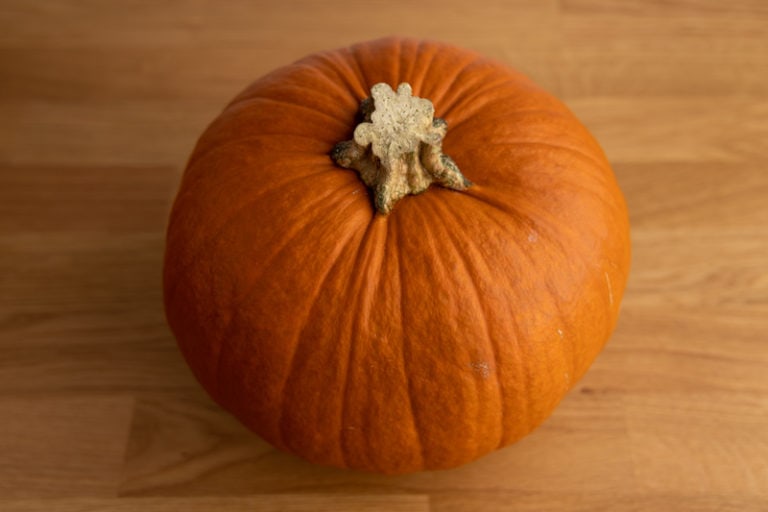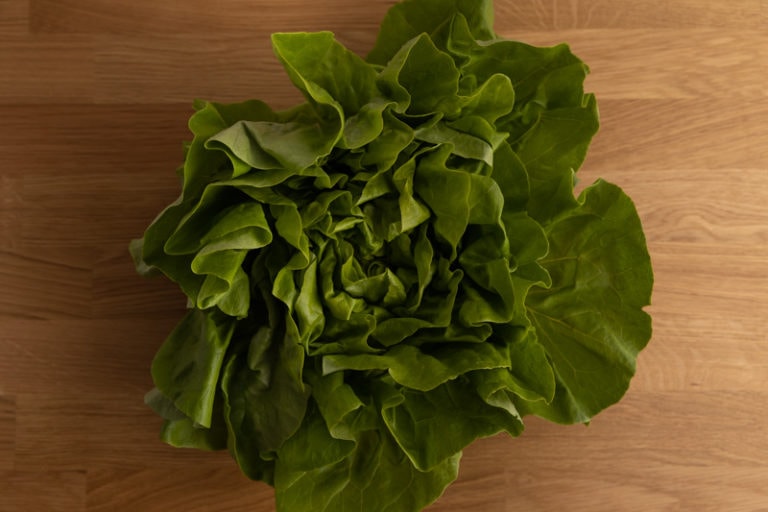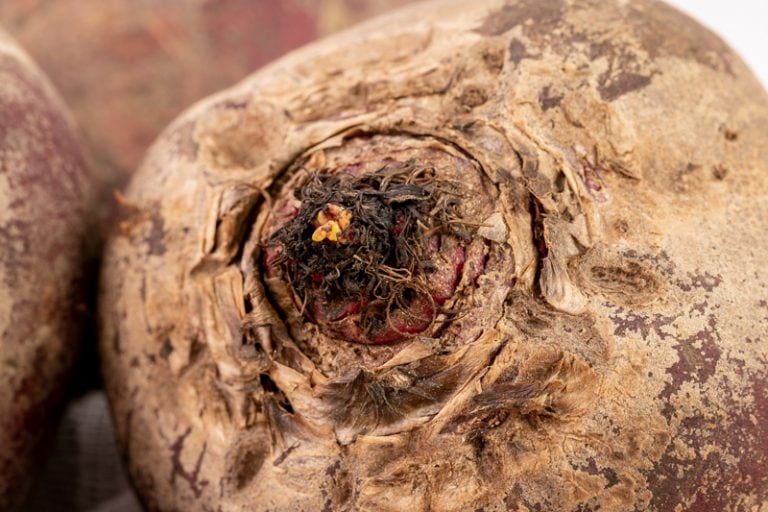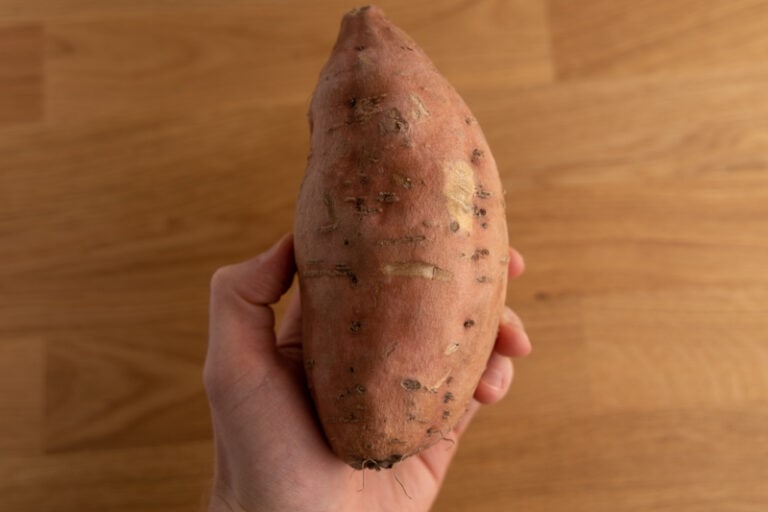How Long Does Spaghetti Squash Last and How to Tell It’s Bad?
Here’s all you need to know about the shelf life, storage, and spoilage of spaghetti squash. Learn how long spaghetti squash lasts, how to store it, and how to tell if one is spoiled.
Got too many spaghetti squashes and don’t want them to spoil? That makes you think: how long is spaghetti squash good for?
Or yours sit in storage for a few weeks already, and you’re wondering how to tell if spaghetti squash is bad.
Sounds familiar? If so, you’re in the right place.
Read on.
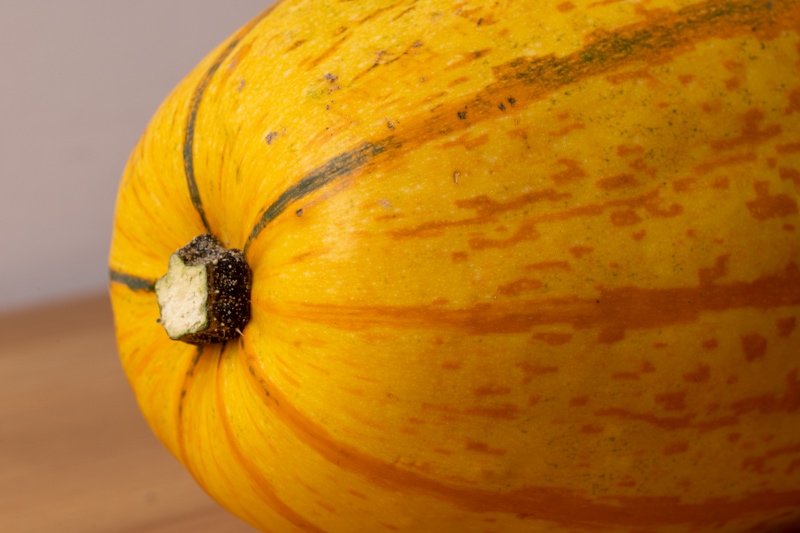
How Long Does Spaghetti Squash Last?
| Pantry | Fridge | |
|---|---|---|
| Whole spaghetti squash | 1 month | |
| Cut-up spaghetti squash | 5 to 7 days | |
| Cooked spaghetti squash | 3 – 4 days |
A whole spaghetti squash lasts for about a month in a cool and dark place. Cut, peeled, or sliced spaghetti squash keeps for 5 to 7 days in the fridge, and cooked spaghetti squash lasts for 3 to 4 days when refrigerated.
That’s the gist of it. Now, let’s get into details.
Max Storage Time
Winter squash, a group spaghetti squash is a part of, grows thick skin. That helps it stay fresh longer, and that’s why its storage period is much longer than most other veggies (including summer squash, such as zucchini).
Spaghetti squash can last for two months or even a bit longer, but it’s not that easy to get the whole period if you’re storing it at home.
The issue here is that spaghetti squash lasts the longest when you store it between 55ºF and 60ºF (about 13ºC to 16ºC). And most folks don’t have access to a root cellar, unheated garage, or any other space that maintains such temperature.
That’s why I stick with the safer recommendation of about one month.
(I make a similar remark in my article on the shelf life of butternut squash.)
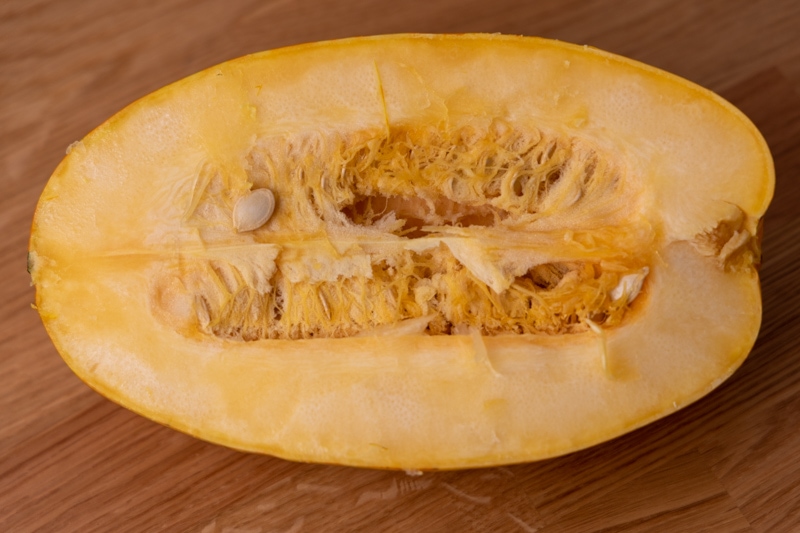
Selection
To get the longest possible storage time, start with choosing the best ones. Choose spaghetti squash that:
- is heavy for its size
- has a firm stem that’s rounded and dry
- the rind has a dull sheen and is intact
Minor discolorations are not important, and you can ignore them unless you’re looking for one that’ll look great on Instagram.
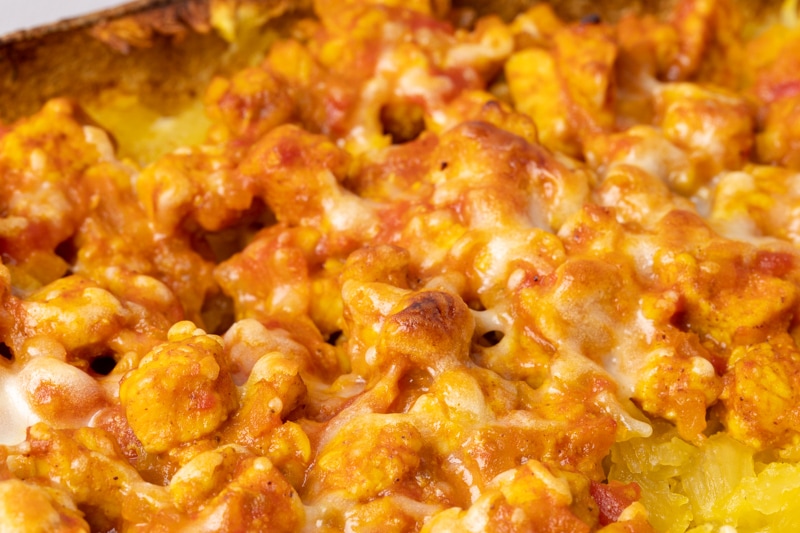
After Cooking
Cooked spaghetti squash last 3 to 4 days when sealed tight in an airtight container or lidded pot in the fridge. Let the cooked squash cool to about room temperature before refrigeration, but limit the cooldown period to two hours or less.
While it’s up to you if you follow the 2-hour rule to a tee, toss your cooked spaghetti squash if it sits out overnight or for more than a couple of hours. Better safe than sorry.
If those 3 to 4 days aren’t long enough for your needs, you can freeze cooked spaghetti squash.
Some people extend that storage time to maybe five days, and that’s usually okay, but things become dangerous if you try to store cooked spaghetti squash even longer.
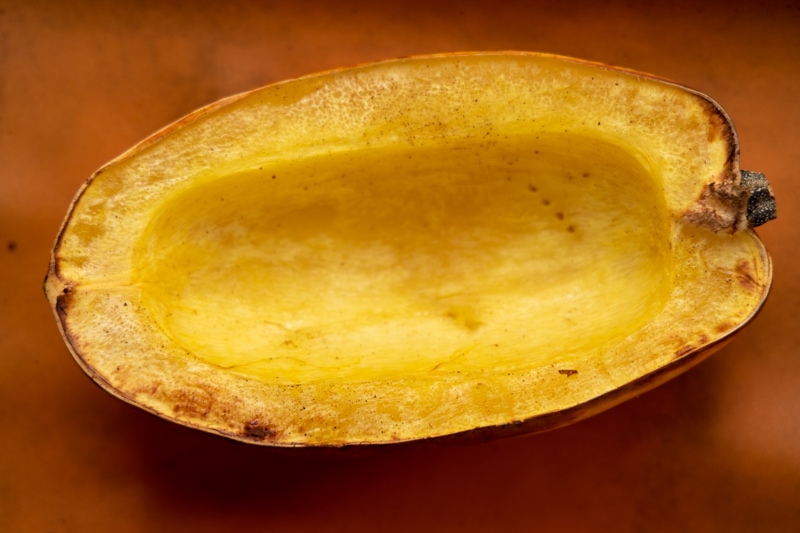
How To Store Spaghetti Squash
Store spaghetti squash in a cool and dry place, away from direct sunlight and heat sources. Once you cut it up, keep the leftovers tightly sealed in the fridge.
For cooked spaghetti squash, let it cool, transfer the leftovers to an airtight container, and put it in the fridge.
As you’ve already learned, the best temperature for storing spaghetti squash is between 55ºF and 60ºF (about 13ºC to 16ºC). So if you have a root cellar or a similar place that’s dry and cool but not fridge-cold, store the squash there.
If not, a cupboard in the kitchen is okay-ish. Just remember to let the squash sit in a well-ventilated place and that the max storage period is around a month, not two months, as some guides might tell you.
Similar rules apply to storing pumpkins.
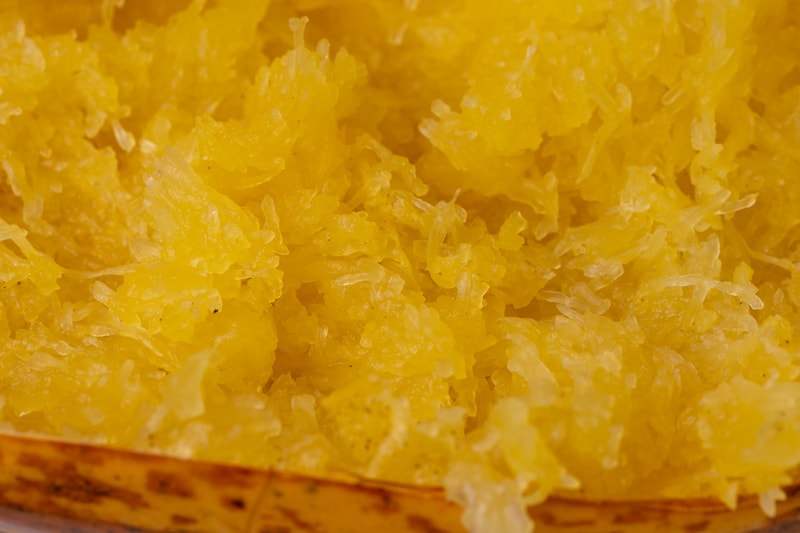
Does Spaghetti Squash Need to Be Refrigerated?
No, you don’t have to refrigerate spaghetti squash.
This winter squash prefers temperatures noticeably higher than those in the fridge, so unless you have a cold cellar that maintains temperatures between 55ºF and 60ºF (about 13ºC to 16ºC), store whole spaghetti squash at room temperature.
Only cut or cooked spaghetti squash requires refrigeration.
After Cutting
When it comes to cut-up spaghetti squash, freezer bags work best for me. They take only as much space as the leftover squash, whereas a container takes much more real estate.
(If you’re anything like me, fridge space is scarce and in demand in your household.)
If you have spaghetti squash halves, store them cut side down. This way, they won’t dry out as quickly.
When it comes to scraping the seeds before storing cut spaghetti squash, it’s up to you. I like to discard all the seeds after I cut the squash in half, no matter when I’m going to use it, but you do you.
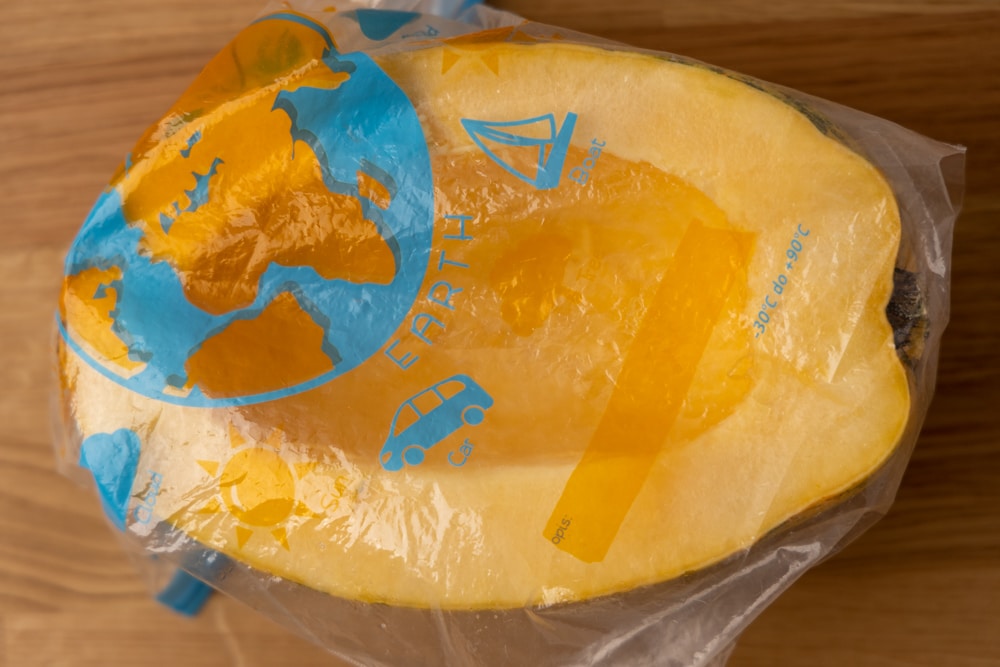
Cooked
Cooked spaghetti squash, and any dishes that it’s a part of, should sit sealed tightly in an airtight container in the fridge.
Wait until the cooked spaghetti squash or dish cools to about room temperature before you transfer it to the fridge. And make sure that it takes less than two hours after you’ve finished cooking, as I already described in the shelf life section.
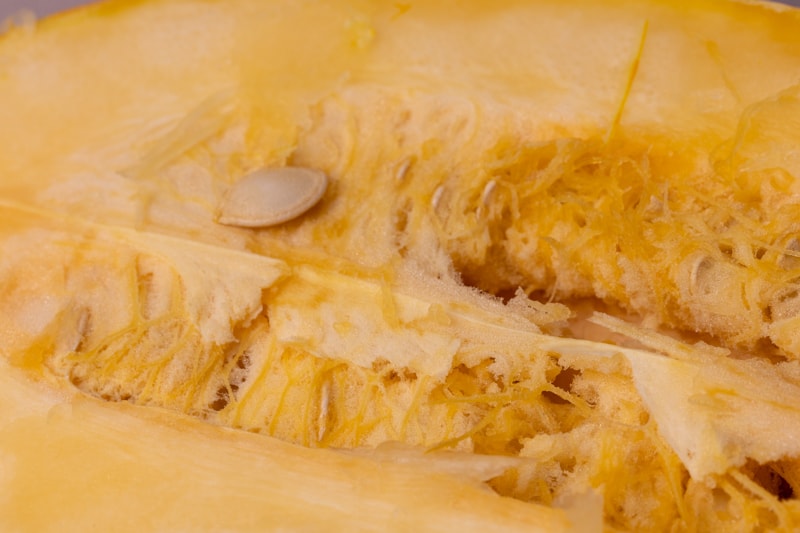
How To Tell If Spaghetti Squash Is Bad?
Discard spaghetti squash if:
- It has large black spots. You can cut out (with some extra) any small rotten areas. But if that would mean cutting off a third of the squash, it’s probably best to toss it.
- It’s soft, leaky, or feels hollow. Either is a sign that the squash has lost quite a lot of water, and it’s probably best to toss it for quality reasons. Of course, you could still use it if you want to, but if it gets to this point, it’s probably pretty gross.
- There’s mold. While whole spaghetti squash doesn’t often grow mold, it can go moldy if cut up. So if you notice on day 3 of storage that there’s some fuzzy action on the cut spaghetti squash, it’s time to let it go.
- It’s cut or cooked and sits in the fridge for a long time. If your spaghetti squash is cut up and refrigerated for more than seven days, or cooked and in the refrigerator for more than five, it’s time for it to go. Enough is enough, even if the squash looks and smells okay.
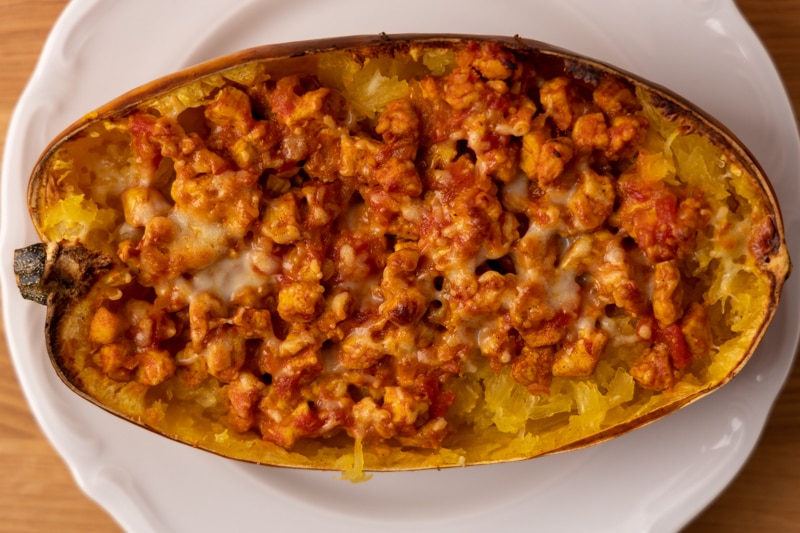
Given that spaghetti squash lasts quite a while, you usually have ample time to cook and eat it. That means your squash most likely won’t spoil before you can get to it.
(Unless you’ve bought a ton or completely forgot about having it in storage.)
What’s more probable is that its quality won’t be all that great after a couple of months in storage.
The flesh will be on the softer side, and the seeds and gunk will dry out and become more stringy. That area looks pretty gross at that point, but that’s about it.
Spaghetti squash should still be fine to eat and taste okay once cooked. So remove those disgusting seeds, and get cooking!
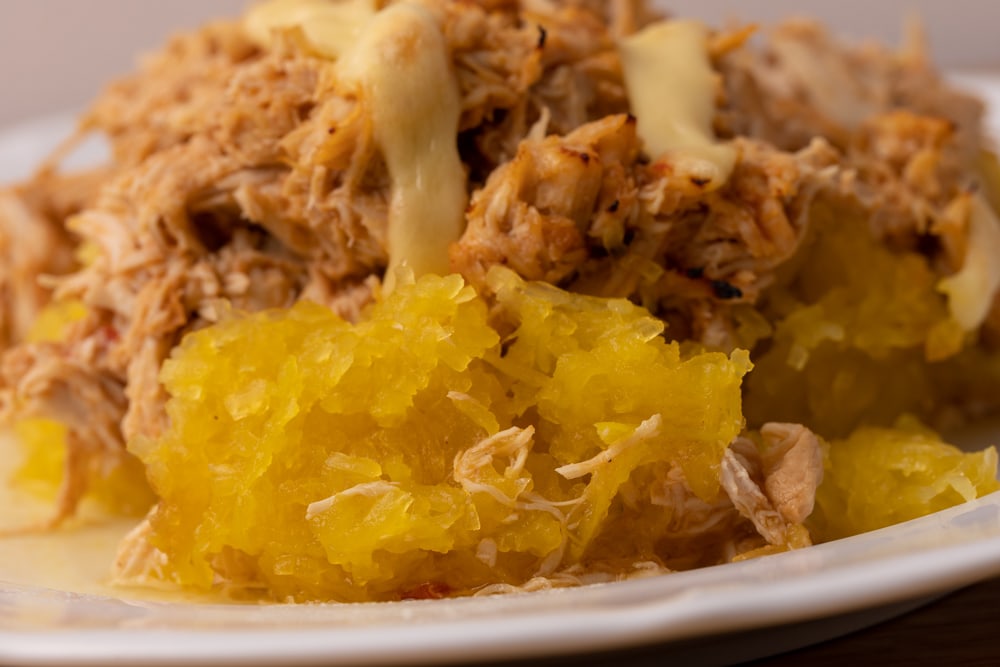
Spaghetti Squash Shelf Life and Spoilage Summary
Thank you for reading this short guide on spaghetti squash. Let’s briefly recap what we’ve covered above:
- How long does spaghetti squash last? Spaghetti squash lasts for about a month at room temperature, 5 to 7 days after it’s cut or peeled, and 3 to 4 days after cooking.
- How to tell if spaghetti squash is bad? Toss spaghetti squash that has large black spots, is soft, leaky, or feels hollow when you grab it. Same if it’s cut up and growing mold or sitting in the fridge for more than a few days (7 for cut, 4 for cooked).
- How to store spaghetti squash? Store spaghetti squash in a cool and dry place. Temperatures between 55ºF and 60ºF are ideal, but room temperature is your second best option. Both cut and cooked spaghetti squash should be tightly sealed in a freezer bag or airtight container, and need to sit in the fridge.
Rotten Records: Share Your Snap!
Caught some food past its prime? Upload your photo to “Rotten Records” and help others spot the signs of spoilage. Every image makes our food community safer and more informed!

![How to Store Carrots? [Whole, Cut, Cooked & Baby Carrots]](https://www.doesitgobad.com/wp-content/uploads/Four-carrots-768x512.jpg)
